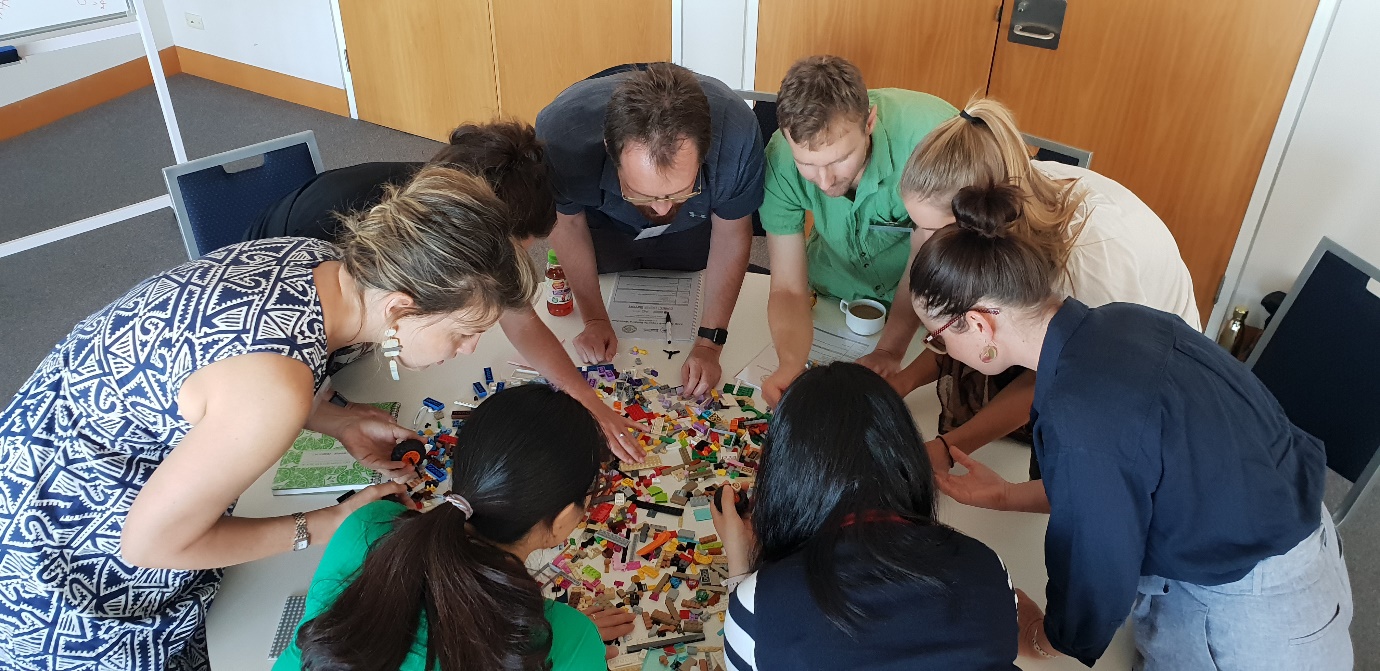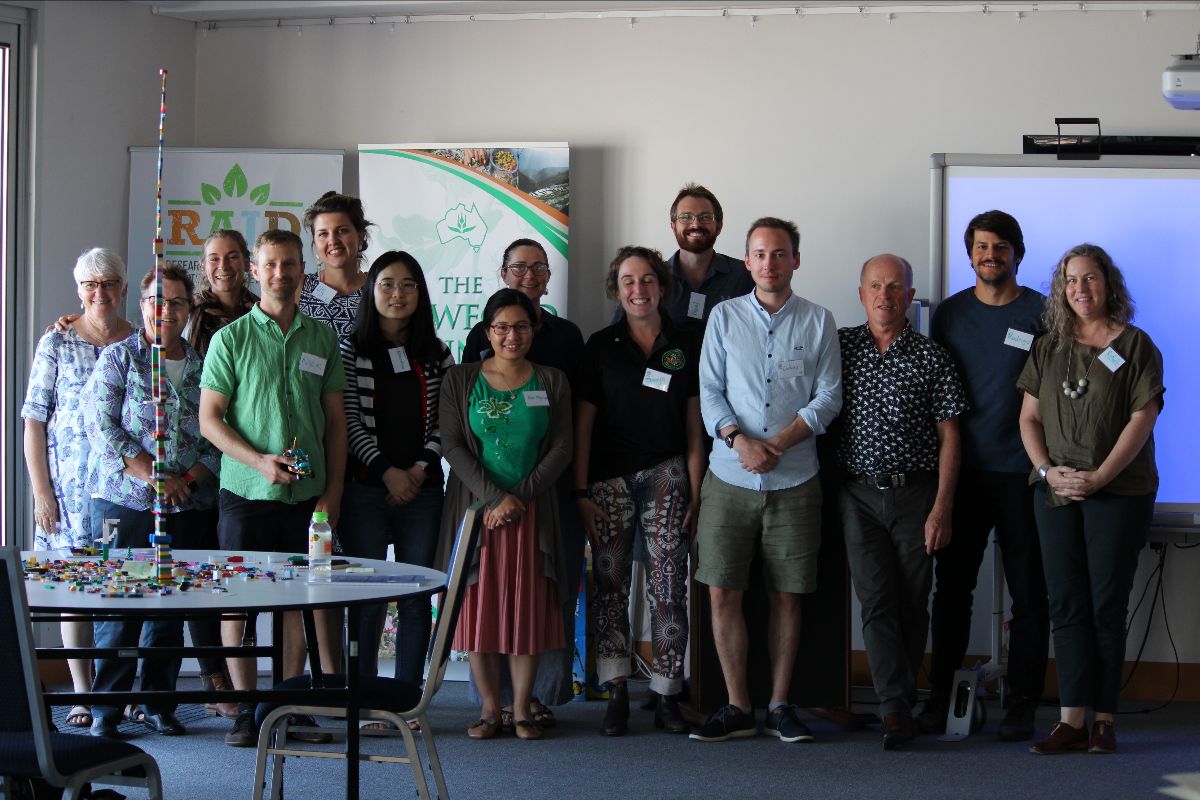Reflections from RAID’s leadership and management workshop: Lego can teach you a lot more about yourself than you’d think!
Tamaya Peressini
ACIAR Graduate Research Officer
Treasurer RAID Network and Plant protection enthusiast
Yes that’s right – I said lego. The plastic toys that somehow bring a world of pain if you are an unfortunate soul who walks on one bare-foot. If you still don’t know what I’m talking about, check it out – because it’s a great Covid-19 lockdown hobby!
Not only that, it can be a useful tool to reflect upon how you lead and work in a team. From 6-9th of March this year RAID hosted the last of the leadership and management workshop series at UWA with support from AG Institute UWA and the Crawford Fund – and this time with a bit of a twist: we had Peter Horne, Country Programs Manager at ACIAR as part of the speakers, along with Lynne O’Brien, William Erskine from UWA, and of course, a dynamic group of early to mid-career researchers (EMCR) working in agriculture research for development (AR4D) – ie. RAIDER’s. Where does lego come into this? Well on the first day we had a series of workshopped exercises lead by Peter – involving and centered around, you guessed it Lego!
Sitting in small groups we had to build ‘a machine’ or ‘an animal’ without being able to talk to one another. After the task is done we reflected on the natural styles of the group: who built consensus? Who took control? Was everyone in the group included? How did you try to keep everyone in the team on task? When people came to criticise your creation, what was your gut reaction – to get defensive or to adapt?

Really what this exercise did for me was to reflect on how I work with and interact with a team – and for me it’s trying to make everyone feel included and try to bring humour along the way. It did also spark my thinking of: how do I lead or work effectively in a group to tackle complex problems, and especially, how do I do this with cultural and language barriers and perspectives to consider? For me: it’s recognising and being aware of the unseen power imbalances that may exist in a team; which are often not put in perspective when working in research for development.
For myself, as a graduate officer working for ACIAR – a major donor in agriculture research for development, it has reminded me to be aware of the image I bring into a project meeting or visit, and how I act and what I say could have influence. I think the way to really work effectively in partnership across cultures is to 1. build trust, and part of building trust is to be more personable, showing vulnerability and humility; and 2. treating the people you are working with as experts (because they are) – always asking opinions, perspectives and thoughts on an issue.
I am so fortunate to have been bouncing ideas around the room with such a diverse group of EMCR’s. The discussions got gutsy, they got vulnerable and it was an environment where people can share and reflect openly but also learn from others experiences. Something I think is incredible amongst a room full of strangers or acquaintances. To quote Liz Brennan, one of the workshop participants and TADEP program manager: ‘take the opportunity to ‘flex a muscle’’ if there is something you have flagged you would like to or need to improve on. As a project manager and researcher, I have been consciously flexing my time management and prioritisation muscle and the approach I take to navigate difficult conversations and critical feedback to achieve positive outcomes.
Overall; the key takeaway that I got from these few days with some of the most amazing young minds in agriculture research for development is: that leadership is fluid and always a learning process, but remember always to be self-reflective rather than self-critical.

This last workshop in Perth wraps up the last of the leadership and management workshop series – and we are curious to hear from YOU the kind of workshops we do in the future. Please email through any ideas on content, format and things you’d like to learn to raid@outlook.com.au


